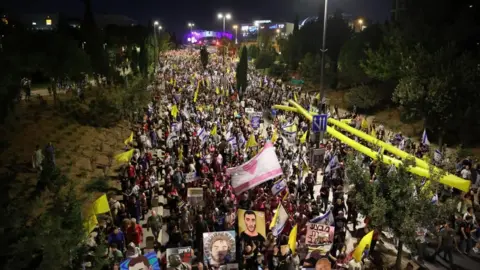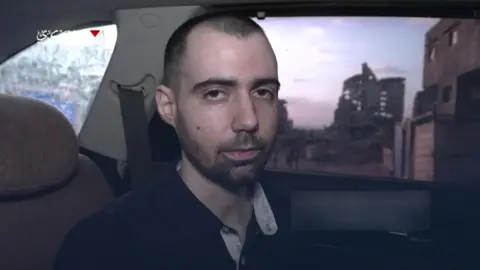In an alarming update from northern Nigeria, kidnappers have executed at least 35 hostages from Banga village in Zamfara state, prompting outrage and fear in the community. Local official Manniru Haidara Kaura revealed that despite ransoms being paid, the cruel acts of violence led to the tragic deaths of these individuals. The incident, which saw a total of 56 people abducted in March, underscores the alarming trend of kidnapping as a profitable venture for criminal gangs known as bandits in the region.
The gang had initially demanded a ransom of one million naira (approximately $655 or £485) per person, and following negotiations, released 18 captives comprising largely women and a young boy. However, the majority of those executed were identified as young individuals, described by Kaura as having been "slaughtered like rams." The distressing reality is that families are often compelled to pay ransoms due to the government's failure to provide safety assurances in such volatile situations.
In 2022, a law was enacted criminalizing ransom payments, imposing at least 15 years in prison for violators, but to date, there have been no arrests under these statutes. The law also introduced the death penalty in cases where victims perish in captivity. Nonetheless, community members feel powerless, as they weigh the consequences of inaction against the grim reality of the kidnappings.
Sixteen of the released hostages are currently hospitalized receiving medical care, while the remains of the deceased are unlikely to be returned to their families, as is often the case in these violent abductions. The cycle of fear and desperation continues as families grapple with the harsh choices they face in a region marked by escalating criminal activity and a troubling kidnapping crisis.
The gang had initially demanded a ransom of one million naira (approximately $655 or £485) per person, and following negotiations, released 18 captives comprising largely women and a young boy. However, the majority of those executed were identified as young individuals, described by Kaura as having been "slaughtered like rams." The distressing reality is that families are often compelled to pay ransoms due to the government's failure to provide safety assurances in such volatile situations.
In 2022, a law was enacted criminalizing ransom payments, imposing at least 15 years in prison for violators, but to date, there have been no arrests under these statutes. The law also introduced the death penalty in cases where victims perish in captivity. Nonetheless, community members feel powerless, as they weigh the consequences of inaction against the grim reality of the kidnappings.
Sixteen of the released hostages are currently hospitalized receiving medical care, while the remains of the deceased are unlikely to be returned to their families, as is often the case in these violent abductions. The cycle of fear and desperation continues as families grapple with the harsh choices they face in a region marked by escalating criminal activity and a troubling kidnapping crisis.





















